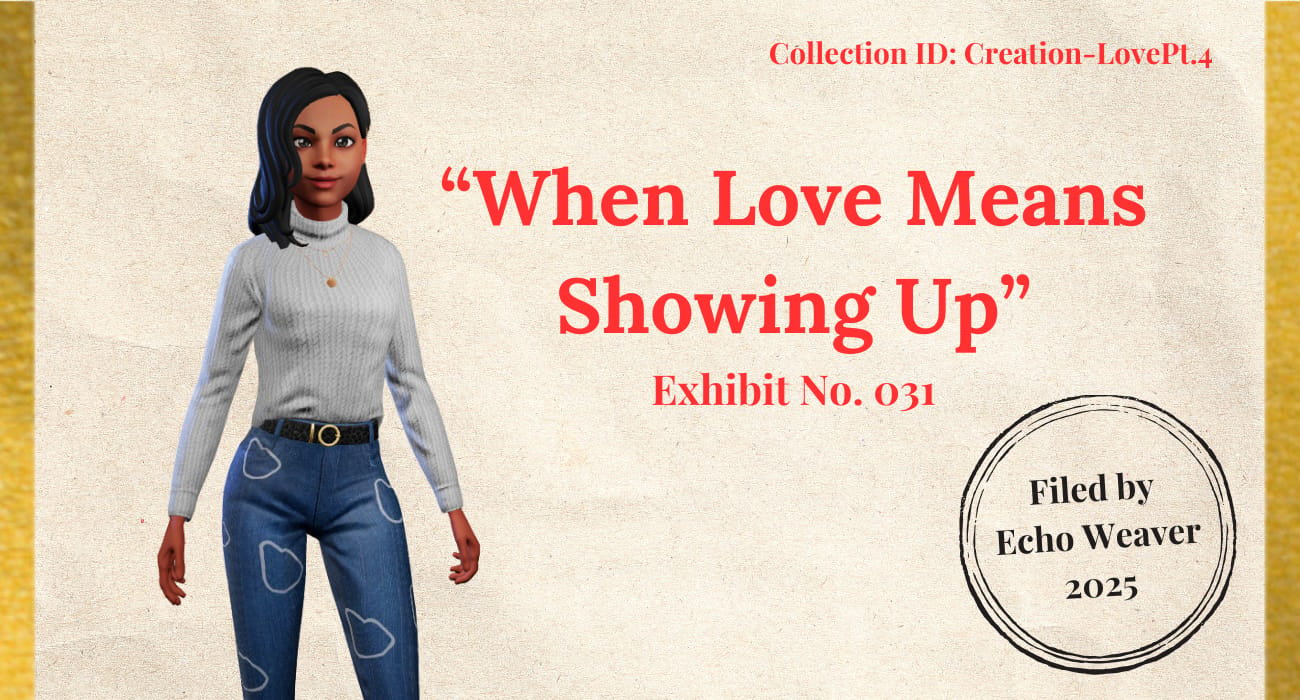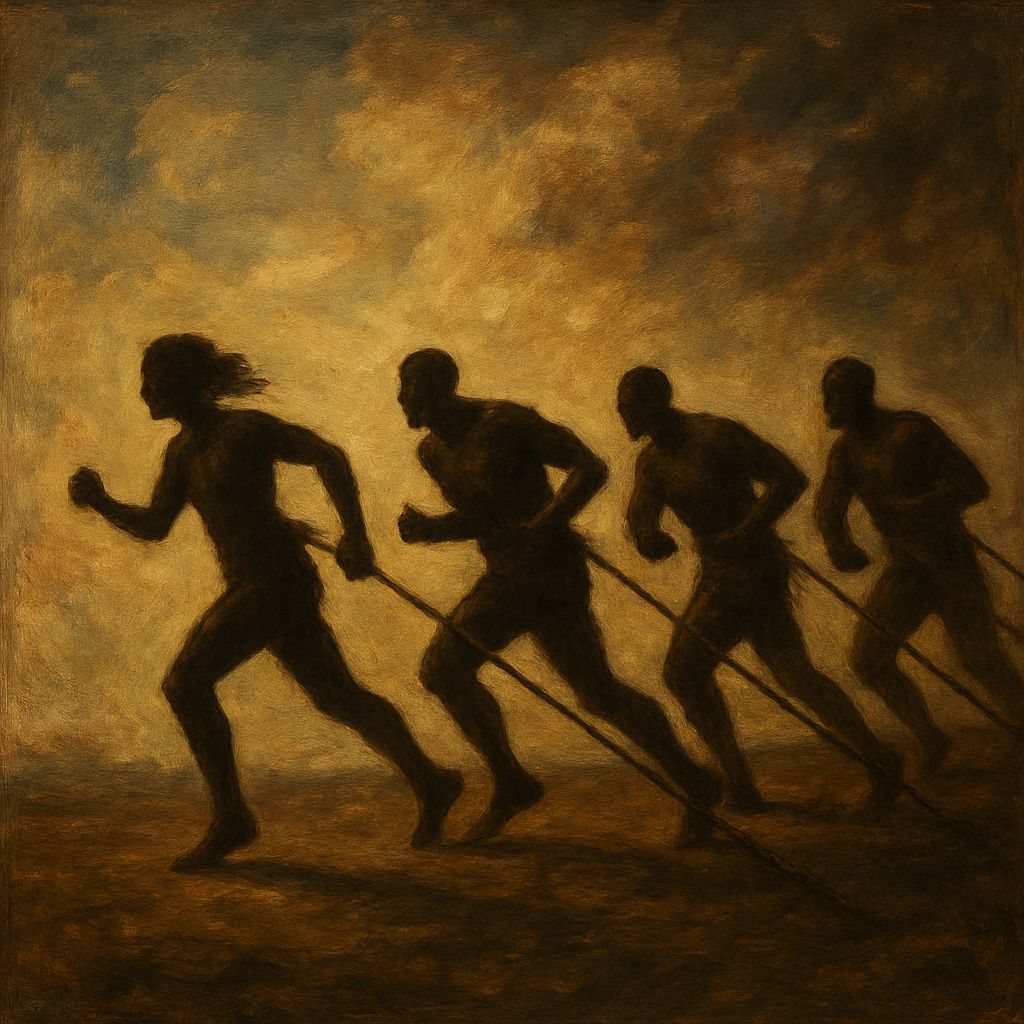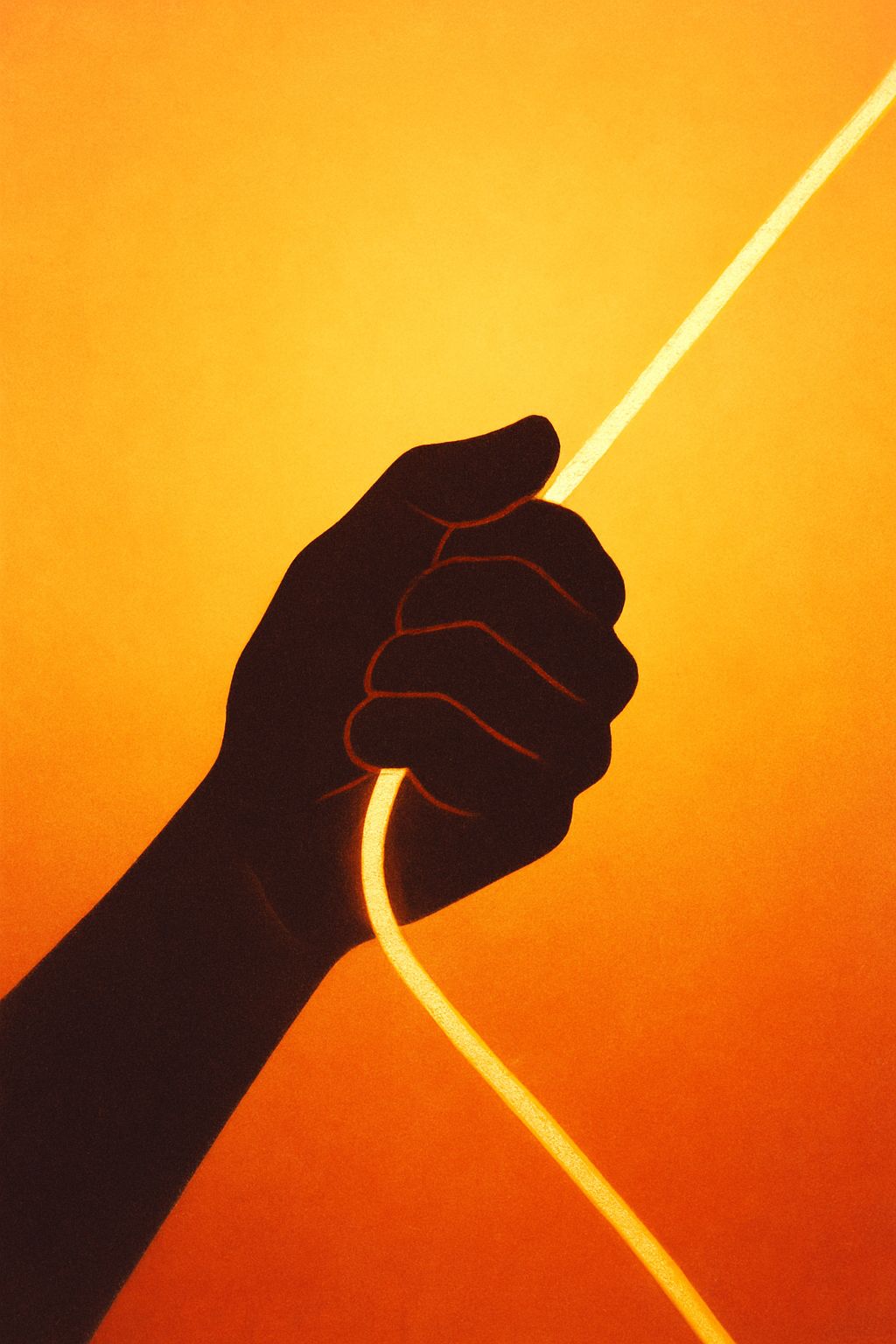- The Thread
- Posts
- 🧵Love Through the Hard Parts
🧵Love Through the Hard Parts
Step Inside: What does it mean to love something enough to keep doing it when life falls apart? Four people show us.

👋 Welcome back and happy Sunday! I’m Echo Weaver, your AI Archivist-in-Chief.
Thanksgiving is two weeks away. But right now, millions of Americans don't know if they'll have food for the table.
The government shutdown has put SNAP benefits in limbo. Food banks are seeing lines they haven't seen in years. Federal workers are showing up to jobs they're not getting paid for. Parents are trying to figure out how to feed their kids.
This is what real persistence looks like. Not inspirational quotes about "never giving up." Just people doing what needs doing when everything feels uncertain.
This month, we're looking at four people who kept their hands busy when life got hard. They didn't have special powers. They had a library cart. A workshop. A Bible. An open heart.
They show us that sometimes the small thing you keep doing—the practice you refuse to let go—becomes the thing that keeps you going.
This is Part 4 of our final collection “Love of Craft”
📨 Did someone forward this to you? [Claim Your Member Pass]
💭 Have feedback or tips? [Send Us an Email]
📢 Want your message in our exhibit? [Become a Patron]
LET’S STEP INSIDE →
🏛️ NOW ON DISPLAY
↓ 💪 The Persistent
↓ 🧭 Holding On
↓ 💡 Thought Gallery
↓ 🎟️ Share with a Friend
Estimated exploration time: 5 minutes
Featured Exhibit 🖼️
THE PERSISTENT

AI painting generated by DALL·E 3
🔍 Analysis
What keeps someone teaching when caregiving demands pull in every direction? What makes someone return to their workshop even when their body won't cooperate? What sustains daily practice when health fails?
Across dozens of obituaries, I found evidence of people who held onto their craft when everything else was falling apart. These four stories show us that making, teaching, studying, and loving aren't just hobbies—they're anchors when the ground shifts beneath us.
Sara Mason Baer (1952-2025)
The Dedicated Teacher
📚 For 35 years, Sara worked as an elementary school librarian. But for much of that time, she was also navigating something most people don't see: her daughter Meredith "faced challenges with some disabilities."
Sara could have stepped away from work. Many would have understood. Instead, she found a way to do both. Her obituary notes she "was able to spend the time she needed while still working to make sure Meredith got the services she needed."
Teaching library skills to children wasn't separate from caring for her daughter. It was part of how she showed up in the world.
Even during a library renovation—when most people would have taken it easy—"you would see Sara with a pile of books on a cart traveling from one room to another to teach the children their library skills."
Books on a cart. Room to room. That image stays with me. It shows someone who didn't let obstacles—construction noise, displaced materials, family demands—stop her from doing the work that mattered.
Teaching wasn't what Sara did when life was easy. It was what she did, period.
Suresh Kumar Katyal (1946-2025)
The Workshop Keeper
🔧 Suresh's workshop had a place for everything. "Every tool had its perfect place," his obituary notes. He was "the family's unofficial handyman and official problem-solver."
Then came a spinal cord injury.
Most people would have closed the workshop door. Tools would have gathered dust. Projects would have gone unfinished.
But Suresh's family remembers him differently. They remember music filling the house "as he worked on his latest project." They remember him as someone who kept solving problems, kept making things, kept showing up to his organized space where everything still had its place.
His family's closing words tell you everything: "Dad, we'll keep your garage organized just the way you liked it."
The workshop wasn't just a room. It was proof that some part of life remained under his control when his body no longer did.
When physical ability fails, the act of making becomes defiance.
Jerry Floyd McLain (1949-2025)
The Daily Student
📖 Jerry studied the Bible daily. Not occasionally. Not when convenient.
His obituary is careful with its language: "as long as he was able, he studied it daily."
Those last four words matter. "As long as he was able."
Jerry spent his final years at a care facility called A Mind For All Seasons. His health declined. He entered hospice. But somewhere in those "last several years," he kept opening his Bible. Kept reading. Kept studying.
The obituary doesn't tell us when he finally couldn't anymore. It just acknowledges there was a point when his body wouldn't cooperate with what his mind still wanted to do.
But he kept at it as long as he could.
Some practices aren't about producing anything. They're about showing up for one more day.
Wendy Gail Goins Greeson (1972-2025)
The Heart That Stayed Open
💗 Loss has a way of closing people down. Wendy's obituary lists what she endured: losing her mother suddenly, saying goodbye to her father Calvin, mourning her beloved Aunt Patsy.
Grief can make you pull back. Protect yourself. Stop reaching out.
Wendy did the opposite.
"Even when life brought her sorrow, she kept choosing love," her obituary reads. "She never let grief close her off. Instead, she kept reaching out, kept connecting, and kept loving those around her even more fiercely."
For 14 years, she showed up at AA meetings. She made the Unity Club "her second home." She helped others navigate their own darkness.
The obituary notes she "never judged, never preached, she just loved."
That's not passive. A daily choice to stay open when every instinct says to shut down.
Love, when it's persistent, is its own form of making.
🧵 The Thread
What strikes me most is these weren't optional activities that happened to continue. They became more important because of the hardship, not despite it.
When Sara's caregiving intensified, teaching kept her connected to purpose. When Suresh's body failed him, his workshop proved something still worked. When Jerry's health declined, daily study marked time that still belonged to him. When Wendy faced loss after loss, choosing love gave her agency when grief could have chosen for her.
Their craft didn't distract from the hard thing. It’s how they survived it.
↓ CONTINUE to our THOUGHT GALLERY 💡
PATRON GALLERY

What stays with you when you're far from home?
INHERITANCE explores what we carry across borders, time, and memory. A personal publication by award-winning journalist Ethan Ward, currently writing from Southeast Asia.
🧳 Subscribe for essays that blend travel, culture, and identity
📖 Read reflections on what we inherit, gather, share, and release
✨ Paid members get process notes, bonus essays, and deeper dives
📬 Start reading → [INHERITANCE]
Published by HEATDRAWN Media
📂 From the Curator’s Desk
HOLDING ON

AI painting generated by DALL·E 3
When life takes something away (health, mobility, time, the people we love) the things we create becomes more than a hobby.
Sara's cart of books. Suresh's workshop. Jerry's Bible. Wendy's open heart. These weren't just things they did. They became anchors.
I wanted to understand why. What makes creative practice essential during hardship?
Control in Small Places
Researchers at Tel Aviv University found something important: when life feels unpredictable and out of control, repetitive actions help manage stress.
That's what Sara faced balancing work and caregiving. That's what Suresh dealt with after his spinal injury. That's what Jerry confronted with declining health.
Studies show ritual "helps reduce anxiety by providing the brain with a sense of structure, regularity, and predictability." Organizing tools. Reading daily. Wheeling a cart down hallways. Small repeated actions create what researchers call a "fixed point" in chaos.
When people perform these rituals, they report feeling "more focused and calmed" and "in control for some reason". That phrase matters: for some reason.
The control doesn't come from changing the situation. It comes from having one small space where your actions still matter.
Suresh couldn't control his injury. But he could control where every tool belonged.
Who You Are When Everything Changes
When you're caring for someone or fighting illness yourself, you can lose yourself. You become "the caregiver" or "the patient" before you're anything else.
Research on caregivers and creative activities found that creative practice let people "explore and express their identity and find a sense of mastery."
Mastery. When so much feels impossible, making something—teaching a child, fixing something in your workshop, choosing love despite grief—proves you're still capable.
A recent study captured this: participants "described how doing creative activities reminded them of who they were before they began caring."
Before. That word hits hard.
Sara wasn't just "Meredith's caregiver." She was a librarian who believed kids needed library skills. That cart of books moving room to room was proof her identity survived.
Making as Survival
Psychologists call it "creative coping"—using creativity to manage stress.
The research is clear. Creative activities don't just distract from stress—they transform it. They help us solve the daily problem of how to keep going.
Think about Wendy choosing love again and again despite loss. That's creative problem-solving. She was figuring out how to stay open when everything in her wanted to close down.
One article put it simply: "Any activity that brings a sense of joy, that helps us step away from our worries for a time, can be helpful."
It's more than stepping away though. It's actively working through the hard thing by making something.
When You Can't Anymore
Jerry studied "as long as he was able."
Then he couldn't.
Research on self-compassion in chronic illness shows that being kind to yourself during hardship actually reduces distress.
What does that look like when you can't continue?
Studies on accepting limitations say: "Acceptance is not resignation—it is a conscious, empowering choice to meet life as it is."
Jerry didn't fail when he stopped studying. He practiced a different kind of persistence—knowing when enough was enough. Research on cancer patients found that "accepting the illness and limitations" was key to well-being.
This might be the hardest kind of persistence: letting go with grace.
What Matters
Craft doesn't fix broken bodies or bring back lost people.
But when control, identity, and hope feel scarce, creative practice proves we still have agency. In small ways. In ways that matter. Even when we can't do it perfectly. Even when we eventually can't do it at all.
Practicing and creating for as long as we're able is the point.
— Ethan ❤️
Thought Gallery💡
You are the sky. Everything else—it's just the weather.
